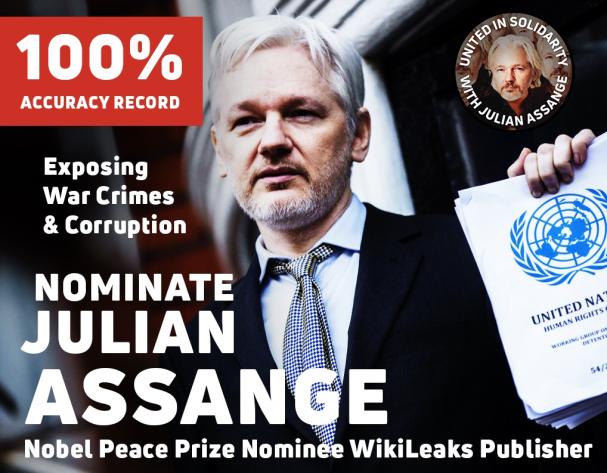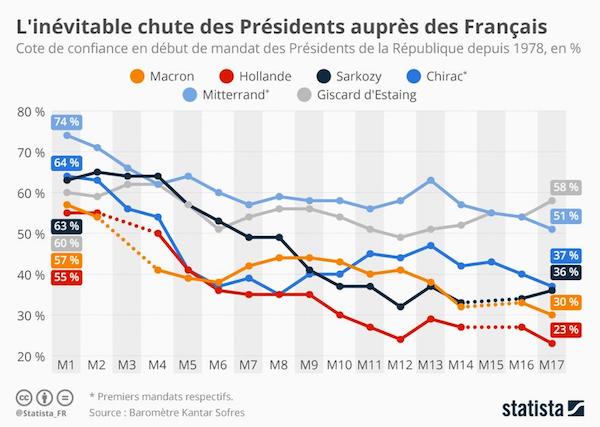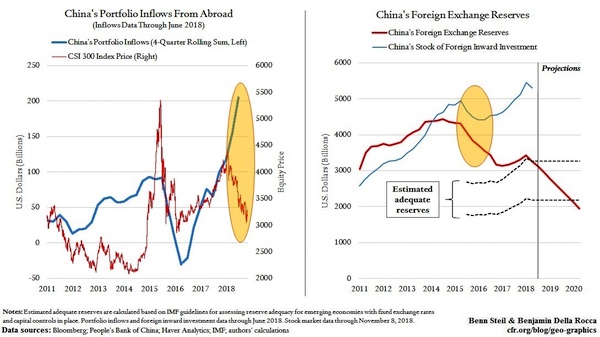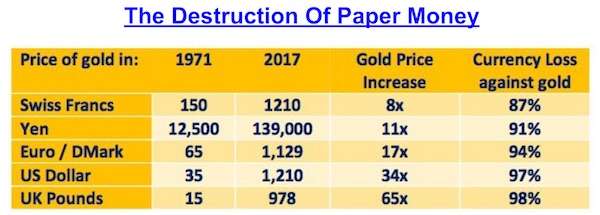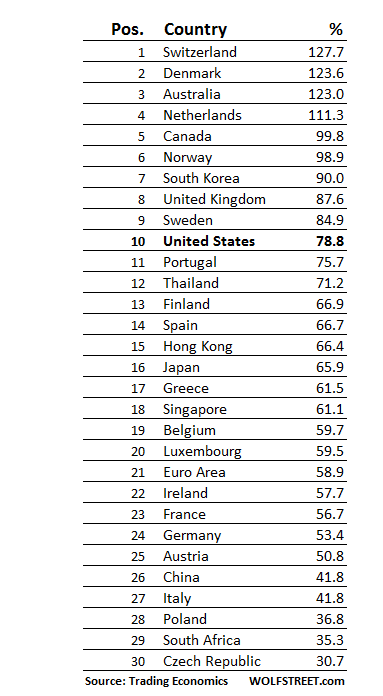
Pablo Picasso Man with straw hat and ice cream cone 1938

The Fed must drink all the poison it brewed.
• JPMorgan: The Fed Will Need To Restart QE Soon
In the latest Flows and Liquidity report from JPMorgan’s Nikolaos Panigirtzoglou published late on Friday, the strategist analyzes various components of market liquidity and concludes that “liquidity will likely continue to tighten gradually in the US banking system even after the Fed has stopped its balance sheet shrinkage.” Specifically, the JPM analysis looks at the bank’s model of US excess money supply, which derives a medium-term money demand target based on 1) the transaction motive, which relates money to nominal incomes and 2) the portfolio motive, which relates money to the nominal values of other assets such as bonds and equities, and 3) the precautionary motive, proxied by US policy uncertainty, whereby agents wish to hold more cash during periods of elevated risk perceptions. This model suggests that this broad US excess liquidity evaporated during the course of 2018 and shifted further into negative or contractionary territory this year.
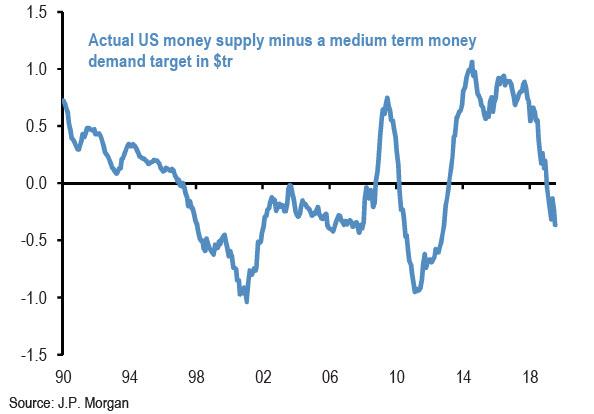
The last time this measure of US excess money supply had shifted into negative territory was during the euro debt crisis years of 2010- 2012, which prompted the Fed to launch QE2 (as well as Operation Twist and QE3) and also eventually resulted in the ECB violating Article 123 of the Maastricht treat, prohibiting monetary financing of states, and led to Draghi launching his own QE. As Panigirtzoglou further explains, the contraction in JPM’s measure of broad liquidity this year has been mostly more driven by a rise in demand and less by a fall in money supply (relative to US GDP). In particular the main drivers have been the rise in uncertainty and the rise in the stock of US financial assets, both of which depress excess money supply via boosting demand.

Excellent from Cohan for Vanity Fair. Obviously written before the ‘apparent suicide’. About which there are a million articles, but let’s wait and see if we can get beyond speculation.
• How Jeffrey Epstein Got His Hooks Into Les Wexner (William D. Cohan)
Lewis remembered that Wexner didn’t care about the numbers, which is more relevant than ever after Wexner released a letter on August 7 asserting that Jeffrey Epstein had “misappropriated vast sums of money” —at least $46 million—from him, and casting himself as just another of Epstein’s victims. “He didn’t understand the numbers,” Lewis said. “He’s never understood numbers. This is not his strength. This man is a genius at dressing women. This is a guy who feels what they feel. That’s his strength. And I figured that out when I first met him and I don’t know how he got that set up in his brain but in his soul, he has a sense of how people feel when they wear his clothing. And that’s a gift. That’s just what it is. Some guys write music, this guy knows how to dress women. He’s very, very talented.”
[..] Around the same time, Lewis became aware that Jeffrey Epstein had entered Wexner’s life, presumably to manage some of Wexner’s money, as has been widely reported. Lewis couldn’t figure out why Wexner had turned to Epstein to manage his money when Lewis already had an unparalleled track record managing some of Wexner’s money—returning more than 30% a year to his partners for 10 years. (Later, Lewis would find trouble with the Securities and Exchange Commission; he pleaded guilty to stock manipulation in 1989, and was barred from the securities industry. President Bill Clinton pardoned Lewis, and a federal court judge later said Mr. Lewis acted for all the right reasons. He was vindicated.)
Lewis says he thinks Epstein was a “con artist” who took advantage of Wexner’s personal weaknesses. “I can’t imagine, frankly, why a man of his intelligence would simply hand the controls over to another guy.” He said Wexner was always a lonely guy. “And this con artist, this fucking idiot, comes into his life,” he continued. “…My feeling is that he had been seduced. And I don’t mean seduced in a physical sense, I mean emotionally seduced out of his loneliness to trust this guy and he figures, he’s so fucking smart he can trust anybody.” Wexner, he said, was “a shy man who got taken” by Epstein.
Wexner was “so bright and so capable,” Lewis continued, “but the talents that he had, those kinds of talents are not financial talents. These are not numbers. He does not look at numbers. He doesn’t want to. What he’s thinking about is the art form of dressing a woman. That’s what he’s good at. That’s what he’s done.” Les Wexner, he said, “would not know a stock from a bond. He does not look at the markets. He does not look at futures or anything like that. That’s not what he does.” Lewis said that Wexner was looking for a friend. “I really believe that,” he said. “And I think that when you see a man who is as bright as he is and he is looking for a friend and he picks the wrong friend, then there’s all hell to pay.”

Brits are waxing philosophical. Here’s one saying Woodstock led straight to Reagan/Thatcher and then to white supremacy. Fukcing hippies!
• These Are The Dying Days Of A Rancid Old Order (Hutton)
Don’t despair. We may be living through an attempted rightwing revolution, but its foundations are rotten. There may be a counter-revolution, as there is after every revolution, and it will be built on much firmer ground. The charlatans may be in control in both Britain and the US, but their time is limited. Their programmes are self-defeating and destructive and they do not speak to the dynamic and increasingly ascendant forces in both our societies. What has happened in the US after the atrocities in El Paso and Dayton is instructive. It is a tipping point. The National Rifle Association may tell Donald Trump repeatedly that any attempt at gun control will not fly with his political base, but Trump can read the runes.
For the Republicans to become the party in de facto defence of what has suddenly become crystallised as white supremacist terrorism would be electoral suicide. The president has to move, not least because, faced with this reality, even his base is shifting. Too many Americans now fear becoming the victims of random murder. Few can dispute that, astonishingly, while the US has 5% of the world’s population, it has 35%-50% of civilian gun ownership, a trend that simply has to be reversed. Within a decade, I am sure, the debate will move on, as white supremacists continue their killing spree, from hardening background checks to debating the constitutional right to bear arms. This must and will happen and it will highlight the marginalisation of rightwing republicanism. And when the political wind changes in the US, it also changes in Britain.
Trump in the US and Boris Johnson in the UK are the extreme culmination of what Reagan and Thatcher began 40 years ago. It started as a legitimate if contestable desire to reframe the postwar settlement, limit the state, promote business and individual self-reliance. But as the great political scientist Samuel Beer famously argued, it was, paradoxically, supported culturally by the individualism, anti-state instincts and nonconformism of the Woodstock generation. Forty years on, continued rightwing political ascendancy has morphed into today’s menacing rightwing ideologies.

“As the Second World War ended, George Orwell made a distinction between patriots who instinctively love their country and the opposite, a political nationalism that he defined as “power hunger tempered by self-deception..“
• The Very Idea Of A United Kingdom Is Being Torn Apart By Toxic Nationalism (G.)
Boris Johnson’s government is hell-bent on conjuring up the absurd and mendacious image of the patriotic British valiantly defying an intransigent Europe determined to turn us into a vassal state. His soundbites, pledging token sums for the NHS and 20,000 more police on the street at some future date, cannot disguise a government driven not by the national interest but by a destructive, populist, nationalist ideology. And with Scottish nationalists pushing a more extreme form of separation and Northern Ireland’s unionists becoming, paradoxically, Northern Irish nationalists – digging in, even if it means, against all economic logic, a hard border with the Irish Republic – we are, at best, only a precariously united kingdom.
Johnson’s flying visits to all corners of the UK have done nothing to dispel the impression that under him the world’s most successful multinational state is devoid of a unifying purpose powerful enough to hold it together and to keep four nationalisms – Scottish, Irish, English and also a rising Welsh nationalism – at bay. Recent polling shows a majority of Scots support Scottish independence. In a new Hope Not Hate poll, many more – 60% – agree a no-deal Brexit will accelerate the demand for independence. Only 15% disagree. What is most worrying is not just that so many think the union will end but how at least for now so few appear to care. Only 30% of British Conservatives (and only 14% of Brexit party voters) would oppose Brexit if it meant the break-up of the union: 56% of Tories (and 78% of Brexit party voters) – in total 70% of Leavers – would go ahead regardless, even if the union collapsed.
[..] As the Second World War ended, George Orwell made a distinction between patriots who instinctively love their country and the opposite, a political nationalism that he defined as “power hunger tempered by self-deception”. He noted its defining features: unreality about the country’s prospects; introversion bordering on the xenophobic; and hate-filled obsessiveness that treats people solely in terms of their loyalty and utility. Orwell argued passionately that the descent into a narrow, chauvinistic nationalism could be halted only by what he called “moral effort”.

The plotters. Cheap cigars, smoky backrooms and bad scotch.
• Cross-Party Schemes Drawn Up To Prevent A Johnson No-Deal Brexit (O.)
Most MPs may now be on the beach, but for those worried about the chances of Britain crashing out of the EU with no deal it has not been the normal break in the sun. For a start, the holiday reading list has been less entertaining than normal. Standing order 24, paragraph 2.7 of the cabinet manual and section 2(3) of the Fixed-Term Parliaments Act have become the must-reads of the summer. Family outings have been interrupted by battles to find phone reception at various beauty spots to talk to opposition MPs. After a week that saw Boris Johnson and his key adviser Dominic Cummings make clear threats about leaving the EU whatever the cost at the end of October, concerned MPs have already begun to plan.
New governments, emergency legislation, breaches of convention and court cases are already being proposed by what several described as the “rebel alliance”. Many anti-no deal MPs are also concerned about the lack of coherence so far. All those who spoke to the Observer had doubts that no-deal Brexit could be avoided. “Everyone has to pull together, and that is never a guarantee,” said one former Tory minister trying to coordinate efforts. “We are trying to hold together an unholy coalition of moderate Labour, Labour frontbench, Lib Dems, Scottish Nationalists, minor parties, independents and moderate Tories. It’s difficult.” However, details of some of the plans are already emerging.
Senior figures within both the Labour and Conservative parties believe that the simplest way to stop no deal is through a new law, forcing the prime minister to ask for an extension to Britain’s EU membership. This is the focus of early efforts. The rebels see two possible routes. The easiest move is to hijack any legislation that the government proposes in the autumn. Yet the plotters know that the government may simply refuse to propose any new laws to avoid such an ambush. “The moment there is legislation, we can amend away,” said one plotter. “But their strategy is clearly not to legislate about anything and have endless debates in parliament about the colour green instead.”

As the MPS are on the beach, the special advisers are not.
• No 10 Cancels Staff Leave, Hinting At Likelihood Of Snap Election (G.)
Boris Johnson’s chief of staff cancelled all leave for government advisers until 31 October in a missive on Thursday night, raising further speculation the government is planning for a forced snap election in the aftermath of the UK leaving the EU with no deal. Special advisers were emailed by Johnson’s senior adviser Edward Lister on Thursday night, saying there was “some confusion about taking holiday”. They were told none should be booked until 31 October, with compensation considered “on a case by case basis” for those who had already booked leave, though the email said advisers were free to spend their weekends “as you wish”. “There is serious work to be done between now and October 31st and we should be focused on the job,” the email said.
The directive angered many recipients, who say staff are exhausted and are facing an unprecedented workload in September and October. One recipient described the email as “posturing” and said special advisers, known as “spads”, are being used as part of the PR war to convince the public the government is serious about no deal. Johnson himself also wrote to all members of the civil service telling them the government’s main focus was now to prepare for a no-deal Brexit. In the letter, Johnson said he wanted to underline that the UK would be leaving on 31 October “whatever the circumstances” and that the civil service must prepare “urgently and rapidly” as its top priority.
“I know many of you have already done a great deal of hard work in mobilising to prepare for a no deal scenario, so that we can leave on 31 October come what may,” the letter said. “Between now and then we must engage and communicate clearly with the British people about what our plans for taking back control mean, what people and businesses need to do, and the support we will provide.”

“His blog clarified the claim, explaining “the Treasury gross figure is slightly more than £350m of which we get back roughly half, though some of this is spent in absurd ways like subsidies for very rich landowners to do stupid things”.
• Brexit Enforcer Cummings’ Farm Took €235,000 In EU Handouts (O.)
Boris Johnson’s controversial enforcer, Dominic Cummings, an architect of Brexit and a fierce critic of Brussels, is co-owner of a farm that has received €250,000 (£235,000) in EU farming subsidies, the Observer can reveal. The revelation is a potential embarrassment for the mastermind behind Johnson’s push to leave the EU by 31 October. Since being appointed as Johnson’s chief adviser, Cummings has presented the battle to leave the EU as one between the people and the politicians. He positions himself as an outsider who wants to demolish elites, end the “absurd subsidies” paid out by the EU and liberate the UK from its arcane rules and regulations.
But his critics say the revelation that Cummings has benefited from the system he intends to smash underscores how many British farmers are reliant on EU money that would evaporate if the UK leaves. An Observer analysis of Land Registry documents and EU subsidy databases reveals that a farm in Durham, which Cummings jointly owns with his parents and another person, has received roughly €20,000 a year for most of the last two decades. The revelation opens Cummings up to charges of hypocrisy, as writing on his blog, he has attacked the use of agricultural subsidies “dreamed up in the 1950s and 1960s” because they “raise prices for the poor to subsidise rich farmers while damaging agriculture in Africa”.
He notoriously came up with the claim that leaving the EU would allow the UK to spend an extra £350m a week on the NHS. His blog clarified the claim, explaining “the Treasury gross figure is slightly more than £350m of which we get back roughly half, though some of this is spent in absurd ways like subsidies for very rich landowners to do stupid things”.

The ‘one country, two systems’ deal runs untiil 2047.
• British Government’s Hong Kong Intervention Riles China (O.)
China has lashed out at the British foreign secretary, Dominic Raab, after he spoke to Hong Kong’s leader about protests that have morphed from a campaign against a controversial extradition bill into rolling street demonstrations demanding electoral reforms. Raab spoke to Hong Kong’s chief executive, Carrie Lam, and stressed the need for “meaningful political dialogue and a fully independent investigation into recent events as a way to build trust” in the territory, the UK Foreign Office said. The former British colony has seen widespread protests in recent months which began with a campaign against a controversial extradition bill and has gone on to include a push for electoral reforms in the Chinese territory.
Hua Chunying, a spokeswoman for the Chinese foreign ministry, said the days where Britain ruled Hong Kong were “long gone … The UK has no sovereignty, jurisdiction or right of supervision over Hong Kong. Affairs of Hong Kong brook no foreign interference. It is simply wrong for the British government to directly call Hong Kong’s chief executive to exert pressure.” A UK foreign office spokesperson said: “The foreign secretary underlined the strength of the relationship between the UK and Hong Kong, noting our support for Hong Kong’s high degree of autonomy as provided for in the joint declaration and our commitment to the principle of ‘one country, two systems’.

Humor.
• Trump’s Financial Carelessness Could Cost His Kids $1.3 Billion In Taxes
Forbes estimates that Trump has paid each of his three eldest children—Donald Jr., Ivanka and Eric Trump—some $35 million in salary, commissions and bonuses for their work as executives at the Trump Organization, and he has given them modest stakes in a handful of relatively insignificant ventures. The rest of the first family—daughter Tiffany, son Barron and wife Melania—don’t seem to have received much at all. That leaves 73-year-old Donald Trump firmly in control of a $3.1 billion tax time bomb. Simply put, it’s bad planning. The president of the United States, one of the wealthiest people in America, appears to have one of the worst tax strategies in the country.
“It’s puzzling,” says Bruce Steiner, a New York estate lawyer who advises high-net-worth clients. “At death if he’s given away nothing, half of it disappears.” Then again, Donald Trump is also in position to relieve his family of much of the burden by simply repealing the federal estate tax altogether. It’s something he has already tried and failed to do once. Now, two years after the Trump tax cuts tweaked the estate tax rules, but not enough to impact the super-wealthy, Trump’s allies in Congress are trying to kill the tax once more. If they prove successful, it would likely save the Trump family more than $1 billion—enough to make it the most lucrative deal of Donald Trump’s life.

A 40-inch parrot. Hey, the moa was 10 feet!
Palaeontologists announced they’ve discovered the largest parrot that ever lived, which they named after the Greek demi-god Heracles in reference to its enormous size and strength Islands are natural laboratories for a variety of fascinating avian evolutionary experiments, particularly islands that lack mammalian predators. New Zealand, for example, is home to a variety of peculiar parrots. There’s the mischievous Kea, the world’s only mountain-dwelling parrot who specializes in dismantling automobiles and re-arranging traffic cones, and the kakapo, a flightless nocturnal parrot that looks like a big green owl, and is the only living parrot that shags free-roaming zoologists.
Now there’s a weird new parrot in town, according to an international team of scientists from New Zealand and Australia. The researchers announced the discovery of the fossilized remains of the largest parrot yet identified, standing half as tall as a human adult with a massive beak that could bite through anything it liked. The researchers estimated the giant parrot was 1 meter (39 inches) tall, and weighed roughly 7 kilograms (15.5 pounds). This is approximately the size of the extinct dodo, and twice the size of New Zealand’s critically endangered kakapo, which is the largest and heaviest parrot alive today.
The researchers named the new parrot Heracles inexpectatus — Hercules the unexpected — in recognition of its Herculean size and strength and because its discovery was completely unexpected. Considering how destructive kea are, just imagine what this giant parrot could have chewed up.

Artist’s reconstruction of the giant parrot Heracles, dwarfing a bevy of 8cm high Kuiornis – small prehistoric wrens that lived 9–16 million years ago on New Zealand – scuttling about on the forest floor. Heracles may have eaten other, smaller, parrot species. (Credit: Brian Choo / Flinders University)

